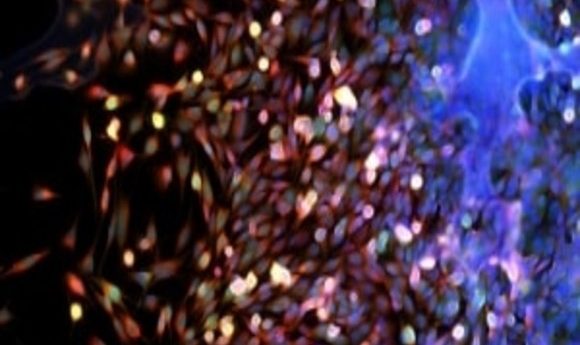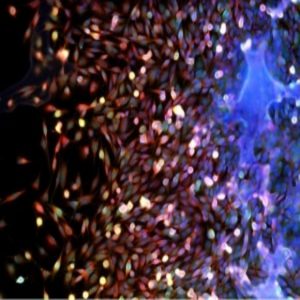Fratricide, supercharging & CRISPR: can CAR-T immunotherapy work for T-cell cancers?

A new CAR-T- cell immunotherapy has been developed using CRISPR gene-editing to target T-cell cancers.

Researchers from the Division of Oncology at Washington University School of Medicine, (MO, USA) have used CRISPR/Cas9 to remove the CD7 protein from the surface of healthy T-cells. This could allow T-cell immunotherapies (CAR-T-cells) to treat patients with cancerous T-cells, which has not been previously possible as therapeutic T-cells have proven to be unable to discriminate between the cancerous T-cells and themselves.
Cellular immunotherapy involves using a patient’s own immune cells –or T-cells– to treat their cancer. The patient’s T-cells are supercharged allowing them to target a variety of blood cancers that are hard to treat conventionally.
However, if the patient’s own T-cells are cancerous, then the therapeutic CAR-T cells may engage in fratricide– Instead of killing the targeted cancerous T cells they could begin to kill themselves. This is because both cells share an antigen, the cell surface protein CD7, which is targeted by CAR-T cells.
The team utilized gene editing to remove CD7 from healthy T-cells.
“If we program T cells to target CD7, they would attack the cancerous cells and each other, thus undermining this approach. To prevent this T-cell fratricide, we used CRISPR/Cas9 gene editing to remove CD7 from healthy T cells, so they no longer carry the target,” commented John DiPersio, senior author of the study.
Harvesting healthy T cells from patients with cancer can be difficult and using donor T cells comes with its own problems such as graft-versus-host disease, where donor T-cells recognise the host’s organs as foreign and attack them, which can be life-threatening.
So, the team used CRISPR to remove the TCRa subunit from the donor T-cells. This prevents the possibility of graft-versus-host disease developing whilst allowing the CAR-T cells to kill cancerous cells. T-cells from healthy donors can be modified and stored for future use.
Matthew Cooper explained, “One additional benefit of this approach is that a patient could receive this therapy much more quickly after diagnosis. We wouldn’t need to harvest the patient’s own T-cells and then modify them, which takes time. We also wouldn’t have to find a matched donor. We could collect T-cells from any healthy donor and have the gene-edited T-cells ready in advance; a strategy termed ‘off-the-shelf’ CAR-T-cell therapy.”
To demonstrate the effectiveness of their therapy, the scientists took T-cell acute lymphoblastic leukaemia from patients and transplanted it into mice. The mice treated with the CAR-T-cells targeting CD7 survived 65 days. Whereas, a control group that received T-cell immunotherapy targeting a different antigen only survived 31 days.
After the success of the therapy in the lab the team are hoping to move the development forward. “In an effort to develop the first clinically viable targeted therapy for this type of cancer, we are scaling up the manufacturing of our gene-edited CAR-T-cells for clinical trials,” explained Cooper.